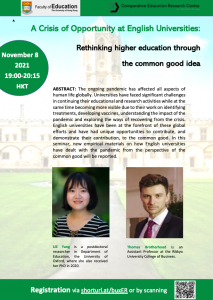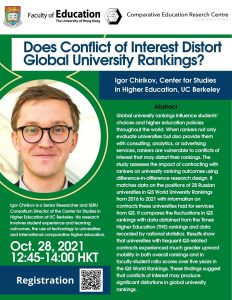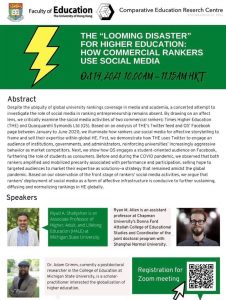CERC will host a webinar by Dr. Lili Yang, a postdoctoral researcher in Department of Education, the University of Oxford, and Dr. Thomas Brotherhood, an Assistant Professor at the Rikkyo University College of Business, who will speak on “A Crisis of Opportunity at English Universities: Rethinking Higher Education through the Common Good Idea“. The webinar will take place on November 8, 2021 (19:00-20:15 HKT) and you are welcome to register via the link shorturl.at/buxER.
Below is the abstract and poster for your information.
Abstract
The ongoing pandemic has affected all aspects of human life globally. Universities have faced significant challenges in continuing their educational and research activities while at the same time becoming more visible due to their work on identifying treatments, developing vaccines, understanding the impact of the pandemic and exploring the ways of recovering from the crisis. English universities have been at the forefront of these global efforts and have had unique opportunities to contribute, and demonstrate their contribution, to the common good. In this seminar, new empirical materials on how English universities have dealt with the pandemic from the perspective of the common good will be reported.
Poster
















